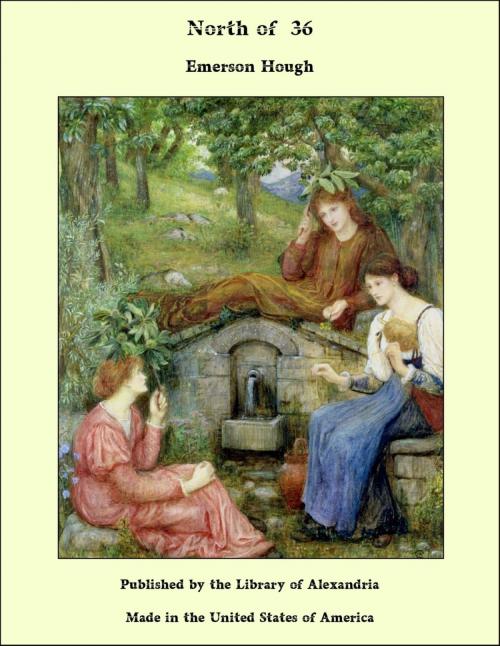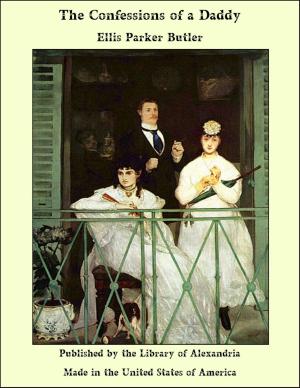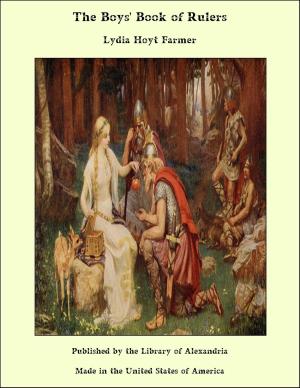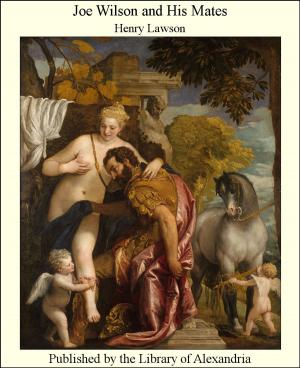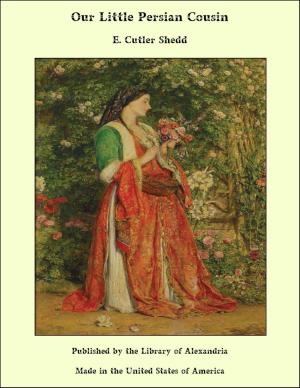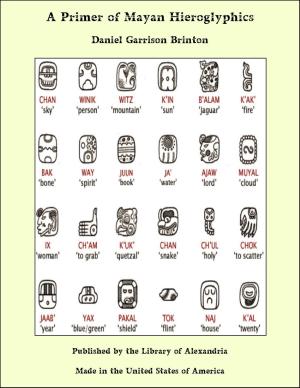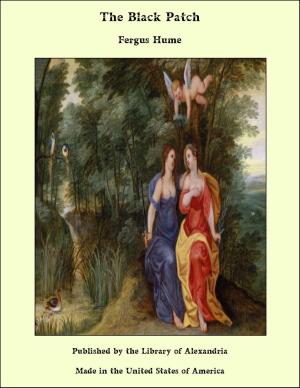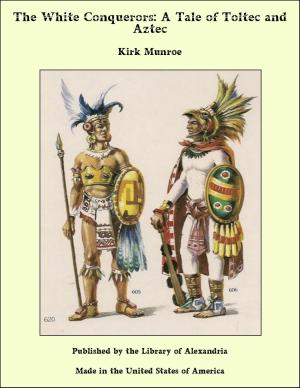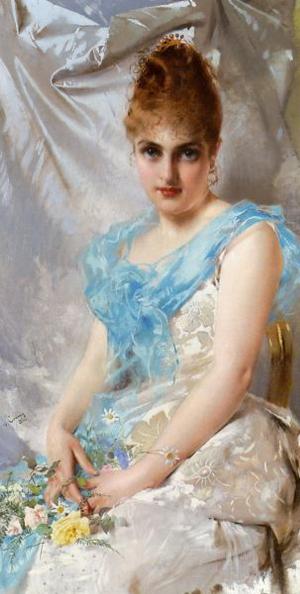| Author: | Emerson Hough | ISBN: | 9781465626516 |
| Publisher: | Library of Alexandria | Publication: | March 8, 2015 |
| Imprint: | Language: | English |
| Author: | Emerson Hough |
| ISBN: | 9781465626516 |
| Publisher: | Library of Alexandria |
| Publication: | March 8, 2015 |
| Imprint: | |
| Language: | English |
MEN——” Taisie meant to say “Good morning, men,” as usually she did if she came to the cook house door before they had finished breakfast. But this morning she hesitated, halted. There had been the usual mealtime silence of the cattle hands, broken only by rasp or chatter of steel on tin; but as the tall girl’s shadow fell at the door of the log house Jim Nabours, foreman of Del Sol, rose at his place. Fifteen other men pushed back their chairs nervously, staring at the boss as though caught in some overt criminal act. In the occupation of eating a regulation breakfast of beef and beans, cattle hands, time out of mind, have asked no aid and invited no company. But Taisie Lockhart was their hereditary chieftainess. Her father, Colonel Burleson Lockhart, these two years deceased—a strong man in his day, and a poignant—had owned the Laguna del Sol range, of unknown acreage. Likewise, he had owned no man knew how many thousand head of long-horned cattle, from calves to mossy horns; owned yonder branching and rambling building of log and adobe called the big house; owned the round pens and the live-oak groves, the mast-fed range hogs and the nuts that fed them; owned bunk houses and cook house and corrals. Yes, and owned faith of body and soul of every man that lived on Del Sol, from old Salazar to the gawkiest ranch boy to put his saddle under the shed. Heiress to all this, as her father had owned lands and herds and men, so did Taisie Lockhart. But to her, orphaned and alone, came an added fealty from her men that amounted almost to fanaticism. Most of them had known and loved her from her childhood. In her young womanhood they enshrined her. The boss of Laguna del Sol now stood framed in the doorway, in man’s garb of shirt and trousers—an assumption shocking in that land and day. This costume she deliberately had assumed when she took on a man’s duties in a business preëminently masculine. Obviously now, she was tall, slender, supple, rounded to a full physical inheritance of womanly charm unhardened by years of life in the saddle and under the sun. More; she was an actual beauty. Anywhere else she would have been a sensation. Here, she spoiled each unfinished breakfast. Against the morning light the freckles of Anastasie Lockhart could not be seen. No matter. Every man of these could have told you the number and contour of them each and all. In a way, too, they could have told you that her freckles went with her hair. The light that shone through the mass of dark red hair—long and unconfined she wore it, clubbed between her shoulders with a shoestring—lighted a thousand fronds into a sort of aureole, halo, crown. Not that this, either, was needed. For long, Taisie Lockhart, orphan owner of Laguna del Sol—just south of Stephen Austin’s first settlement in old Texas it lay—had been traditional saint, angel, to every creature that bore boots and spurs within a hundred miles. Nay, more than that; across two states—old Texas and old Louisiana—so far as interchange of information then went, before the day of telegraph and rails, men, and even women, spoke in hushed tones of Taisie Lockhart; the former out of awe at her beauty, the latter out of pity for her fate. An orphan, left alone at twenty, just as she came home from her convent schooling at the ancient city of New Orleans, with no woman relative and no female companions other than her servants, what could be the fate of such a girl, seventy-five miles from the nearest town, twenty-five from the nearest rancho, and the rumor of her beauty continually spreading league by league? On her shoulders rested all the responsibilities of what was or had been one of the largest and richest ranches of Central Texas, and thereto was the responsibility for what manner of beauty sets mad the hearts of men.
MEN——” Taisie meant to say “Good morning, men,” as usually she did if she came to the cook house door before they had finished breakfast. But this morning she hesitated, halted. There had been the usual mealtime silence of the cattle hands, broken only by rasp or chatter of steel on tin; but as the tall girl’s shadow fell at the door of the log house Jim Nabours, foreman of Del Sol, rose at his place. Fifteen other men pushed back their chairs nervously, staring at the boss as though caught in some overt criminal act. In the occupation of eating a regulation breakfast of beef and beans, cattle hands, time out of mind, have asked no aid and invited no company. But Taisie Lockhart was their hereditary chieftainess. Her father, Colonel Burleson Lockhart, these two years deceased—a strong man in his day, and a poignant—had owned the Laguna del Sol range, of unknown acreage. Likewise, he had owned no man knew how many thousand head of long-horned cattle, from calves to mossy horns; owned yonder branching and rambling building of log and adobe called the big house; owned the round pens and the live-oak groves, the mast-fed range hogs and the nuts that fed them; owned bunk houses and cook house and corrals. Yes, and owned faith of body and soul of every man that lived on Del Sol, from old Salazar to the gawkiest ranch boy to put his saddle under the shed. Heiress to all this, as her father had owned lands and herds and men, so did Taisie Lockhart. But to her, orphaned and alone, came an added fealty from her men that amounted almost to fanaticism. Most of them had known and loved her from her childhood. In her young womanhood they enshrined her. The boss of Laguna del Sol now stood framed in the doorway, in man’s garb of shirt and trousers—an assumption shocking in that land and day. This costume she deliberately had assumed when she took on a man’s duties in a business preëminently masculine. Obviously now, she was tall, slender, supple, rounded to a full physical inheritance of womanly charm unhardened by years of life in the saddle and under the sun. More; she was an actual beauty. Anywhere else she would have been a sensation. Here, she spoiled each unfinished breakfast. Against the morning light the freckles of Anastasie Lockhart could not be seen. No matter. Every man of these could have told you the number and contour of them each and all. In a way, too, they could have told you that her freckles went with her hair. The light that shone through the mass of dark red hair—long and unconfined she wore it, clubbed between her shoulders with a shoestring—lighted a thousand fronds into a sort of aureole, halo, crown. Not that this, either, was needed. For long, Taisie Lockhart, orphan owner of Laguna del Sol—just south of Stephen Austin’s first settlement in old Texas it lay—had been traditional saint, angel, to every creature that bore boots and spurs within a hundred miles. Nay, more than that; across two states—old Texas and old Louisiana—so far as interchange of information then went, before the day of telegraph and rails, men, and even women, spoke in hushed tones of Taisie Lockhart; the former out of awe at her beauty, the latter out of pity for her fate. An orphan, left alone at twenty, just as she came home from her convent schooling at the ancient city of New Orleans, with no woman relative and no female companions other than her servants, what could be the fate of such a girl, seventy-five miles from the nearest town, twenty-five from the nearest rancho, and the rumor of her beauty continually spreading league by league? On her shoulders rested all the responsibilities of what was or had been one of the largest and richest ranches of Central Texas, and thereto was the responsibility for what manner of beauty sets mad the hearts of men.
